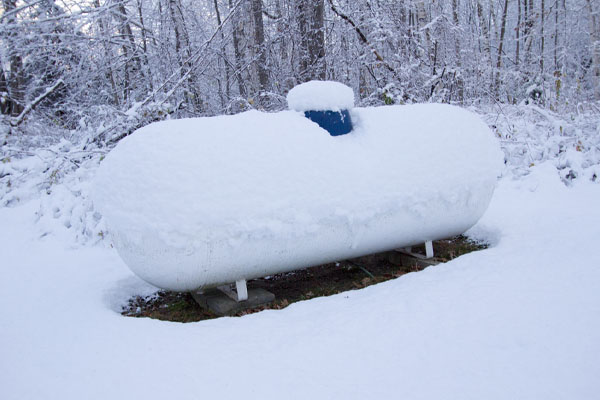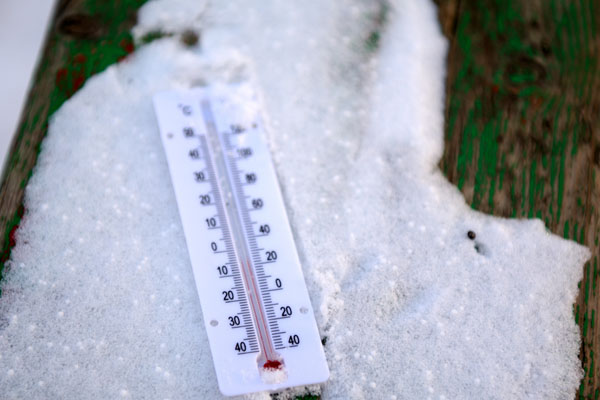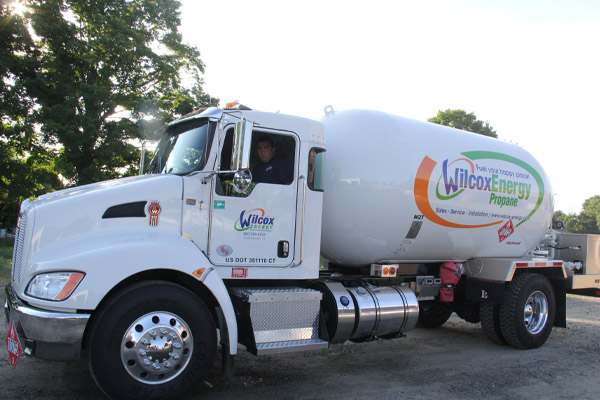Contents

Homeowners may worry about using propane, especially in colder seasons, over concerns about it freezing at low temperatures. But, does propane freeze?
The good news is that there is plenty that can be done to avoid this situation. As a cleaner fuel, storing propane at home for heating releases less carbon monoxide in comparison to many energy alternatives. This makes it a strong choice for people with homes in the sticks or when living where energy supplies aren’t readily accessible.
In this article, we address any concerns over propane freezing in cold weather, what to be aware of, and the appropriate steps to take.
Do I Have to Worry About My Propane Freezing?
Frozen propane is an incredibly rare occurrence. As a result, we hardly ever hear from one of our customers about this kind of issue. However, that doesn’t mean that their propane supply isn’t affected by cold spells or tough winter seasons.
Cold weather, rather than freezing propane, is more the issue. It can create a type of knock-on effect that’s unexpected by homeowners.
At What Point Does Propane Freeze?

People tend to focus on the freezing point because they hear more about this than anything else.
The freezing point for propane is minus 187.7 degrees Centigrade or minus 306.4 Fahrenheit. It remains constant at this level, regardless of how or where the propane is stored too.
Propane will convert to a solid fuel state at its freezing point, which is why people are so concerned about it. When this happens, it won’t flow from a storage tank through to your home, propane grill, or backup generator. Then you’re stuck.
However, this isn’t a problem for homeowners. The boiling point of propane might be, though, and this is where people lose the plot a little bit…
The Boiling Point of Propane is What Matters, Not the Freezing Point
The propane boiling point is measured at minus 42 degrees Centigrade or minus 43.6 degrees Fahrenheit. Again, it doesn’t vary from these two measurements based on storage location or conditions.
You do not want your propane storage tank and the propane inside falling to these low temperatures.
What is the Relevance of the Boiling Point for Propane?
The boiling point is where propane is unable to vaporize.
The vaporization process is required for propane users because it allows the fuel to burn and provides a heat source.
This ensures that the propane supply reaches the heating system, the generator can fire up should it be needed, and the swimming pool isn’t chilly when taking a morning dip.
Propane Tank Pressure is Important Too
Propane storage tanks maintain internal pressure to allow them to function properly. As outside temperatures decline, so does the temperature of the propane inside the tank. It also causes it to contract, taking up less space. When this occurs, it creates a vacuum of space inside the tank, and the pressure (or PSI) declines.
A PSI of between 100 to 200 is fine. Above this is a little high.
Below 100 PSI and the propane will begin to have difficulties remaining in liquid form.
The risk here is that it will start to solidify as both temperature and tank pressure drops occur. In solid form, the propane cannot travel down the lines to the heater, stove, or other connected appliances and equipment to keep them operational.
4 Steps to Take to Protect Your Propane Supply
Keep Your Propane Tank Topped Up

A tank that’s 70% empty struggles to maintain a high enough PSI to keep the propane in a liquid form.
Sudden temperature drops that happen when propane supplies are already running low quickly lead to a drop in PSI. This results in a disrupted propane supply to connected heating systems, cooking appliances, generators, and more.
By getting regular propane deliveries, your propane storage tank never runs too low.
Remove Snow and Water from the Tank Exterior
Storage tanks can suffer from moisture in the air, precipitation, or freezing temperatures allowing ice to form. Tanks can then drop in temperature, especially when snow on their surface melts but later reforms as ice sheets or sleet. Any regulators and valves are also at risk in cold temperatures too.
Make it a daily habit during cold seasons to remove snow layers and water from on or near the tank. Because if the snow and water aren’t present, it can’t freeze over.
Cover the Propane Tank
Using a non-electric storage tank cover is beneficial to keep the tank warmer.
An insulated blanket might be a possibility too, depending on the size of the tank.
Either of these can avoid ice from forming. Do not use a heated blanket or heated cover because it would be unsafe.
Close the Propane Tank Valve When Not in Use
A valve left in the open position can freeze up. It can also let freezing lines lower the internal tank temperature too.
Closing the valve when propane isn’t being used avoids many related cold weather issues.
Conclusion
While most propane tanks will never suffer from freezing, stored propane could be adversely affected in extreme weather.
To avoid this, preventative measures such as not allowing your tank to run low, maintaining adequate pressure inside the tank, covering it as a form of insulation, and clearing any snow, water, or ice from the tank’s surfaces are best.
Lastly, when not needing to use the propane tank, it’s always best to close the valve. This prevents lower temperatures from reaching the tank and helps it to maintain adequate pressure to avoid the propane solidifying.
Call Wilcox Energy For Reliable Propane Services

When you need a reliable propane delivery service on the southern shoreline of Connecticut, be sure to contact Wilcox Energy. We offer high-quality fuel deliveries that are fast, affordable, and friendly.
You can count on Wilcox Energy to provide you with unbeatable service each and every time.
Give us a call today to discuss our different delivery plans and financing options.
We also offer a full line of HVAC services to enhance your home’s comfort and energy efficiency. Some of the services that we offer include heater tune-ups, furnace repairs, HVAC installations, and much, much more. Call now!
For more information about our propane deliveries or HVAC services, contact Wilcox Energy. You can click here to contact us or you can call us at (860) 399-6218. We offer a full line of affordable and trusted home comfort services.
